June 1, 2015
By
Lisa A. Sturtevant, PhD
Why Regionalism?
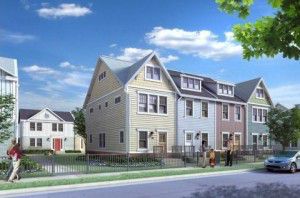 Housing is a regional issue, like transportation and environmental quality. However, unlike with those other areas, a regional approach to housing policy has been largely a non-starter, despite its importance to the Washington DC area’s overall well-being. We know a lot about the region’s housing needs and the potential repercussions of an insufficient supply of housing. Research from the George Mason University Center for Regional Analysis has analyzed the amount and types of housing that will be needed to support sustainable regional economic growth over the next 20 years. New data from the Census Bureau shows that last year population growth in the region slowed; that slowdown has been attributed to weaker economic growth as well as to the region’s high cost of living.
Housing is a regional issue, like transportation and environmental quality. However, unlike with those other areas, a regional approach to housing policy has been largely a non-starter, despite its importance to the Washington DC area’s overall well-being. We know a lot about the region’s housing needs and the potential repercussions of an insufficient supply of housing. Research from the George Mason University Center for Regional Analysis has analyzed the amount and types of housing that will be needed to support sustainable regional economic growth over the next 20 years. New data from the Census Bureau shows that last year population growth in the region slowed; that slowdown has been attributed to weaker economic growth as well as to the region’s high cost of living.
A lack of a regional approach to affordable housing exacerbates income and racial inequality throughout the region. According to a recent report by the Urban Institute, there is a severe shortage of housing regionwide that is affordable to extremely low income individuals and families. Lower-income households that access affordable housing with a voucher tend to be concentrated in higher-poverty, lower-opportunity neighborhoods. Richard Florida and his collaborators have shown that the Washington DC region has a relatively high level of economic segregation compared to other US metro areas. And this map (below) of poverty by race shows that poor African Americans—and to a lesser extent Hispanics—are concentrated in certain parts of the region.
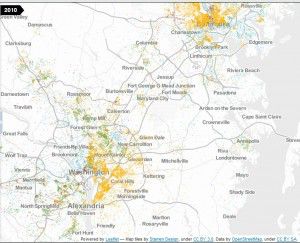
We are fortunate to live in a prosperous region with a wealth of opportunities that can support individual and family economic well-being and success. Thus, we are better positioned than many other places to create real regional tools to expand housing options. There are challenges, of course, including the presence of three separate states (or state-like bodies) with different rules and priorities for housing and land use. But we should be able to overcome that and other obstacles to regionalism, particularly if we take an incremental—but results-driven—approach.
What is Being Done in the Washington Region?
Advocates, policymakers, planners and others across the region are well aware of the regional scope of the affordable housing challenge in the greater Washington DC area. Through the Metropolitan Washington Council of Governments (MWCOG), local elected officials and others have come together to develop goals for planning regionally for housing within existing and growing activity centers that provide opportunities for the region’s residents.
And even more recently, the Greater Washington Housing Leaders Group (GWHLG), a group of regional organizations led by Citi, MWCOG, Enterprise and the Washington Regional Association of Grantmakers (WRAG), has sponsored research and meetings on the need to work collaboratively on affordable housing across the region. With representatives from advocacy groups, industry leaders (including HAND), community groups, business groups and local governments, the GWHLG has plans to move beyond talking about needs to building buy-in from diverse stakeholders throughout the region and moving solutions forward by supporting affordable housing proposals in individual jurisdictions.
Like past regional housing efforts (for example, the Greater Washington Housing Initiative), it remains a challenge to find ways to develop a set of tools that includes ways to hold local jurisdictions accountable for meeting housing needs and to provide some type of regional oversight of affordable housing policies and production.
How Can the Greater Washington Area Move More Forcefully to a Regional Affordable Housing Strategy?
The time seems particularly ripe to try new things on the regionalism front. While the Washington DC area’s affordability challenges are long-standing, the current economic climate— with slower job growth and more competition from regions around the country—creates a new opportunity for regionalism.
with slower job growth and more competition from regions around the country—creates a new opportunity for regionalism.
The challenges to regionalism in the Washington DC area are not unique to us. Regional bodies across the country generally have not had the authority to implement real regional plans effectively, despite federal efforts to support regional efforts on housing and related issues. There is only a small number of places across the country that have adopted meaningful regional affordable housing tools and funding sources. Is there something the greater Washington DC area can learn from these places?
- State-generated regional housing plans. At the state level, New Jersey and California have been leaders in developing regional fair share housing plans and determining the housing needs in each local jurisdiction. However, political opposition at both the state and local levels, as well as a number of court challenges to affordable housing requirements, highlight the difficulties in adopting enforceable regional housing plans, even when only one state is involved.
- Regional funds for affordable housing development. One example of a regional affordable housing fund is the Bay Area Transit-Oriented Affordable Housing (TOAH) Fund which provides flexible financing to purchase or improve property near transit lines for the development of affordable housing and other community services. The TOAH is funded by a $10 million investment from the Metropolitan Transportation Commission, the transportation planning agency for the San Francisco Bay Area. Additional capital for the Fund is provided by private groups, including Citi Community Capital, Morgan Stanley, the Ford Foundation, Living Cities, and the San Francisco Foundation. Examples of recent projects completed with TOAH funding can be found here.
- Issue-specific regional strategies. Some regions have developed regional agreements and funding sources to address a specific affordable housing challenge, particularly homelessness. The greater Portland, Maine area adopted a single community plan to address youth homelessness. The plan includes funding for housing, as well as employment, physical health, mental health, substance abuse, and education services. The Hampton Roads (VA) region has established a regional task force to end homelessness to bring together regional leaders not only to discuss strategies for addressing homelessness and but also to focus on how to increase resources for regional homelessness prevention programs.
- Regional administration of affordable housing programs. Some localities have turned to regional entities to administer local programs. The Metropolitan Council, an appointed body created by the Minnesota Legislature to plan for growth in the Twin Cities metro area, has been granted fairly broad powers to tax and take other actions for the public good at a regional scale. The Metropolitan Council administers the region’s Housing Choice Voucher (Section 8) program, with the goal of improving efficiency of the program and maximizing the number of families served.

These and other regional efforts from around the country can serve as models for the greater Washington DC area. However, our region also has the opportunity to be innovative and to explore new approaches to regionalism. While there may not be many new tools for affordable housing, there can be new ways to coordinate and collaborate. Building small and recognizing successes can help demonstrate how regional action can benefit the wider community without squelching local autonomy. Some potential “small steps” for regionalism:
- Locally-developed regional affordable housing plan and progress report. There is growing acknowledgement among the region’s local leadership about the need to plan for more housing that is affordable to lower-income individuals and families. Localities could demonstrate their commitment to meeting the region’s housing needs by signing on to a regional housing plan that includes specific local housing targets for production and preservation. Each jurisdiction’s progress towards these goals could be reported annually (or bi-annually). The keys to this approach are to get real buy-in from each local jurisdiction and to choose an appropriate regional organization (perhaps MWCOG or WRAG) to oversee the evaluation of local efforts.
- Regional compact around ending homelessness. In March, the leadership of the District of Columbia, Montgomery County, and Prince George’s County announced plans to organize private and public sector partners to work together to end homelessness in the metro area. This collaboration is an important step towards regionalism and additional steps could be taken to build off of this effort to develop an even stronger regional strategy. The collaboration should include jurisdictions in Northern Virginia, for example, and specific goals and dates for ending homelessness and local and regional sources of funding for specific homelessness programs.
- Common ordinances around specific affordable housing tools. Many jurisdictions across the region struggle with how to develop effective policies and ordinances to promote affordable housing. While local jurisdictions often listen and learn from each other about best practices, there could be benefits—such as wider adoption of policies that have been demonstrated to expand affordable housing options and predictability in the development process—for multiple jurisdictions to adopt common ordinances around specific tools. Example common language might be developed for ordinances about accessory dwelling unit (ADU), form-based codes, or parking requirements.
There are many other ways we could approach regional strategies to the affordable housing challenges in the Washington DC area, and the suggestions presented here may seem incredibly modest in contrast to some other proposals (e.g. a regional affordable housing trust fund, regional taxing authority). However, there are benefits to starting with
small initiatives that can have an impact—even if at the margins—in the relative near term. Longer term, successes born from these small steps can help build broader support for regional action and can lay the groundwork for more comprehensive regional strategies down the road.


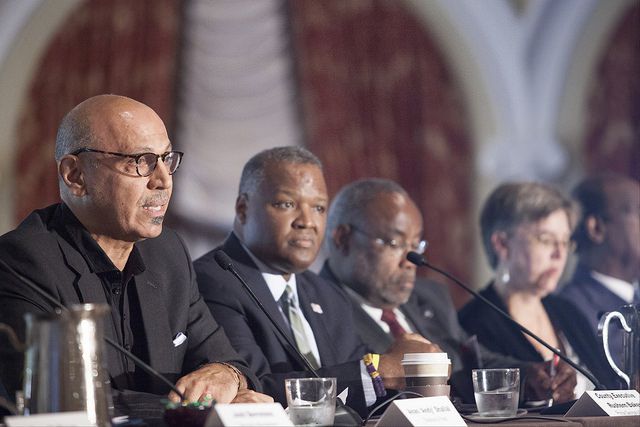

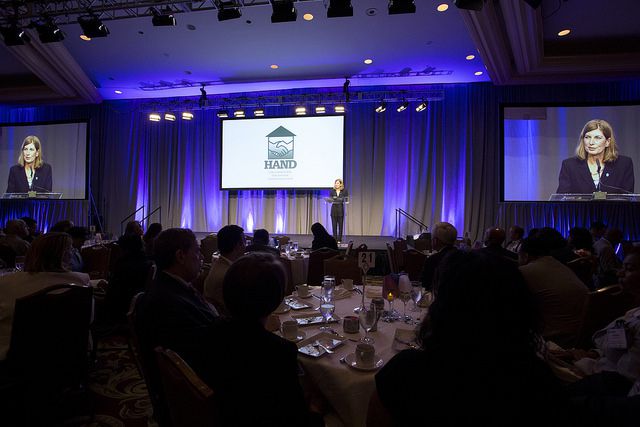
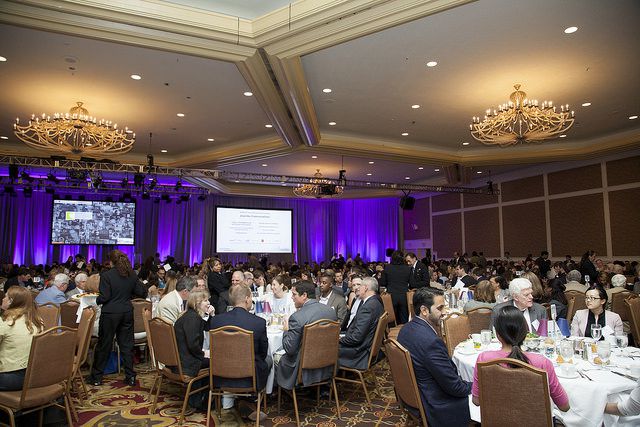
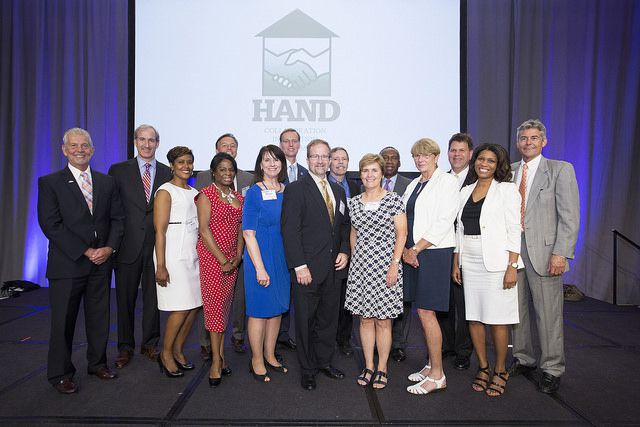
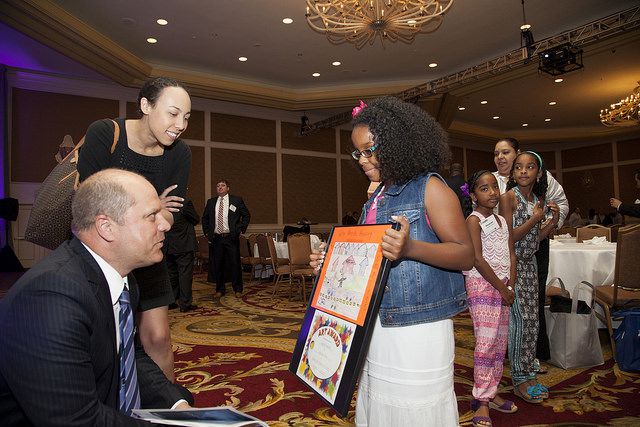
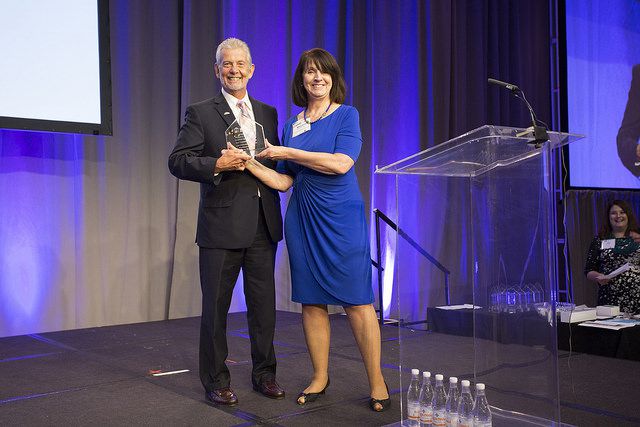
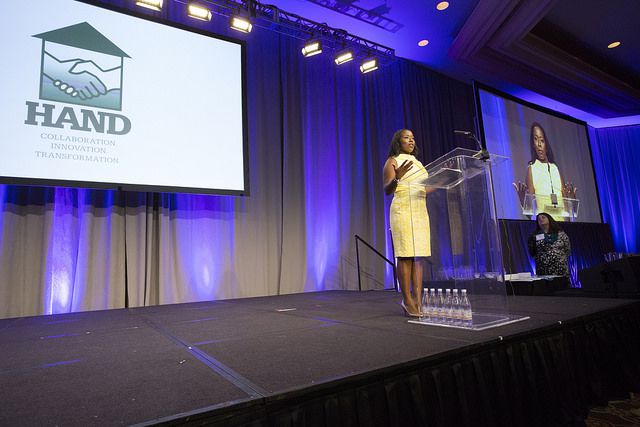
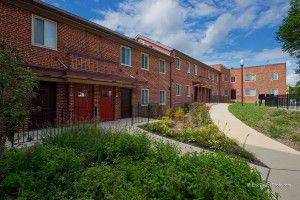
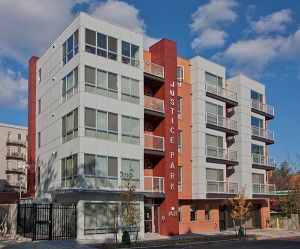


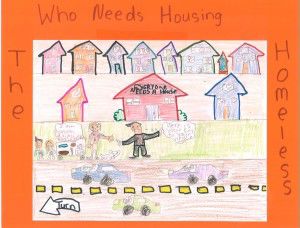

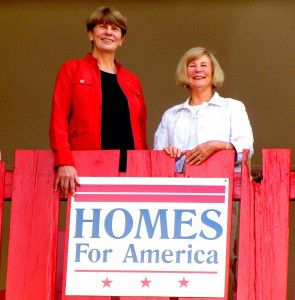 Homes for America
Homes for America 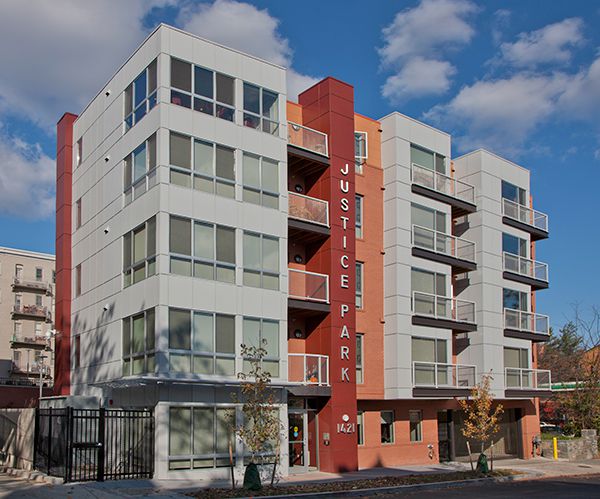 #Amazing. When
#Amazing. When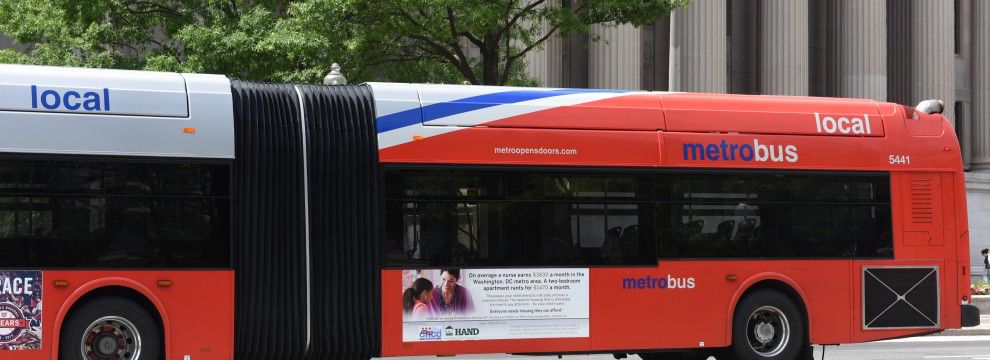
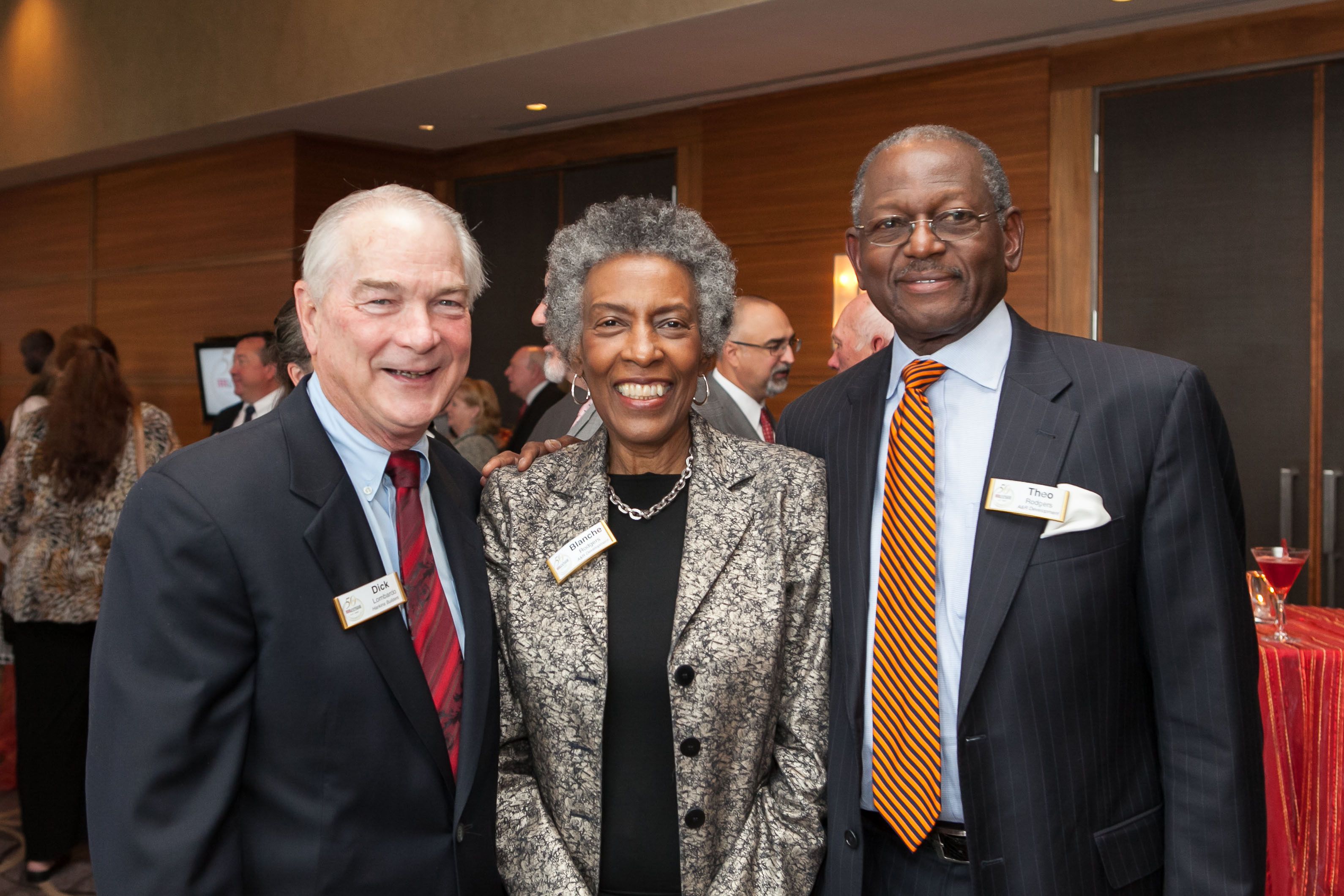 On May 21st, Harkins Builders celebrated their 50th Anniversary at the Four Seasons Hotel in Baltimore. More than 200 guests, including employees, long-time clients, architects, former executives, and other Harkins friends, gathered to celebrate 50 years of preconstruction, construction, and design-build excellence in the Mid-Atlantic region. Harkins President and CEO Dick Lombardo acknowledged all of the people who have contributed to the company’s success, and shared plans for how the company would continue to grow and prosper.
On May 21st, Harkins Builders celebrated their 50th Anniversary at the Four Seasons Hotel in Baltimore. More than 200 guests, including employees, long-time clients, architects, former executives, and other Harkins friends, gathered to celebrate 50 years of preconstruction, construction, and design-build excellence in the Mid-Atlantic region. Harkins President and CEO Dick Lombardo acknowledged all of the people who have contributed to the company’s success, and shared plans for how the company would continue to grow and prosper.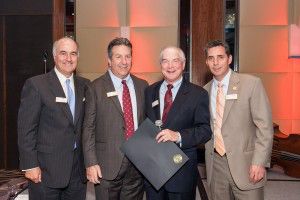 Maryland Secretary of Business and Economic Development Mike Gill presented Harkins with a Governor’s Citation expressing the State’s appreciation and good wishes, and Howard County Executive Allan Kittleman presented an Executive Proclamation declaring May 21st, 2015 as Harkins Builders Day in Howard County, Maryland, where the company has its headquarters. The cocktail and hors d’oeuvres reception included signature red Harkintinis, a cigar bar, and live music.
Maryland Secretary of Business and Economic Development Mike Gill presented Harkins with a Governor’s Citation expressing the State’s appreciation and good wishes, and Howard County Executive Allan Kittleman presented an Executive Proclamation declaring May 21st, 2015 as Harkins Builders Day in Howard County, Maryland, where the company has its headquarters. The cocktail and hors d’oeuvres reception included signature red Harkintinis, a cigar bar, and live music.








